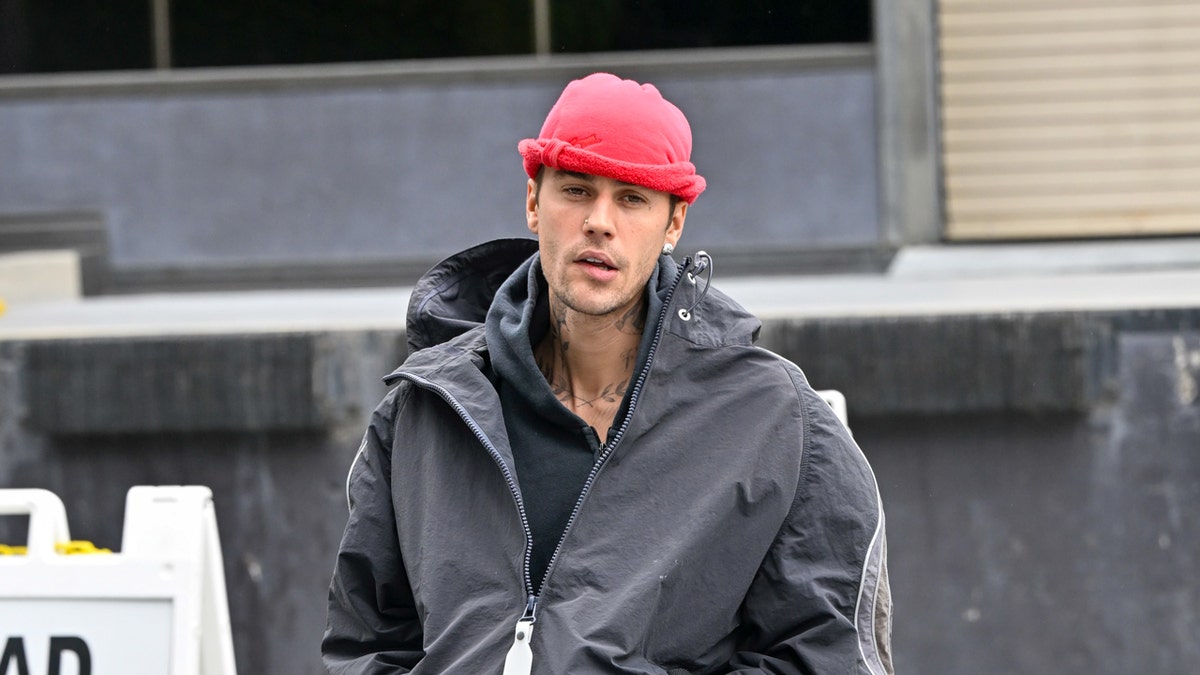🚨Justin Bieber Reveals How Beyonce & Jay Z Sold Him To Diddy
The Fragile State of Justin Bieber: A Reflection on Trauma and the Music Industry
In recent months, Justin Bieber has found himself at the center of a whirlwind of speculation and concern regarding his mental health and emotional well-being. Friends and fans alike have expressed worry over his erratic behavior, which many believe is linked to the ongoing controversies surrounding hip-hop mogul Sean “Diddy” Combs. As allegations of misconduct and abuse against Diddy continue to surface, the impact on those who have been associated with him, including Bieber, cannot be overlooked.
Justin Bieber’s relationship with Diddy has been scrutinized in light of the recent allegations against the music executive. Viral videos from Bieber’s childhood, showcasing his interactions with Diddy, have resurfaced, prompting discussions about the unhealthy dynamics that may have existed. The juxtaposition of a young, impressionable Bieber with a man now viewed as a “monster” raises questions about the influence of such relationships on a developing artist.

Bieber’s past experiences with Diddy, who has been accused of various forms of misconduct, may have left lasting scars. The concept of “retraumatization” is particularly relevant here; as Diddy’s legal troubles unfold, Bieber may be forced to confront his own past and the implications of his association with the hip-hop icon. This can lead to a fragile emotional state, as old wounds are reopened and the weight of past experiences becomes increasingly difficult to bear.
Reports suggest that Bieber is struggling with his identity and place within the music industry. Friends have noted that he appears to be spiraling, and his wife, Hailey Bieber, has been criticized for not providing the support he needs during this tumultuous time. The pressure to conform to the expectations of the music industry, coupled with the trauma of his past, may be contributing to his current state of distress.
Bieber’s recent actions indicate a desire to break free from the constraints of the “club” of industry gatekeepers. He has been vocal about his discontent with the music establishment, expressing a need to distance himself from the toxic dynamics that often accompany fame. This rebellion against the status quo is a significant step for Bieber, but it also comes with its own set of challenges. The music industry is notorious for its gatekeeping, and rejecting that system can lead to isolation and further emotional turmoil.
The allegations against Diddy are severe and troubling. Former associates, including Mark Curry, have come forward with claims of Diddy’s abusive behavior, both towards women and within the industry. These revelations paint a grim picture of a man who has wielded power in harmful ways. The impact of such allegations extends beyond Diddy himself; they reverberate through the lives of those who have been associated with him, including Bieber.
Curry’s accounts of Diddy’s arrogance and violent tendencies raise questions about the culture of the music industry and the normalization of such behavior. The idea that Diddy has fought with not only his peers but also with women and himself speaks to a broader issue of toxic masculinity and the pressures faced by men in positions of power. For Bieber, who has been in the public eye since a young age, navigating these dynamics can be particularly challenging.
Bieber’s struggles are emblematic of a larger issue within the music industry: the impact of trauma on artists. The pressures of fame, combined with the emotional toll of past experiences, can lead to a cycle of self-destructive behavior. As Bieber grapples with his identity and the fallout from his association with Diddy, it is crucial to recognize the importance of mental health support.
The music industry has often been criticized for its lack of resources for artists dealing with mental health issues. The stigma surrounding mental health can prevent individuals from seeking help, leading to a dangerous cycle of silence and suffering. For Bieber, the need for support is paramount, especially as he navigates the complexities of his past and the current turmoil surrounding Diddy.
As Justin Bieber continues to face the challenges of his past and present, it is essential for him to prioritize his mental health and well-being. The journey toward healing is not linear, and it requires a supportive network of friends, family, and professionals who understand the unique pressures faced by those in the public eye.
Bieber’s recent actions suggest a desire for authenticity and a break from the toxic dynamics of the music industry. By speaking out against the gatekeepers and asserting his independence, he may find a path toward healing and self-discovery. However, this journey will require courage and resilience, as well as a commitment to confronting the trauma that has shaped his life.
In conclusion, the ongoing saga surrounding Justin Bieber and Diddy serves as a reminder of the complexities of fame, trauma, and the music industry. As Bieber navigates this challenging landscape, it is crucial for him to seek the support he needs and to prioritize his mental health. The road ahead may be fraught with difficulties, but with the right resources and a commitment to healing, there is hope for a brighter future.




